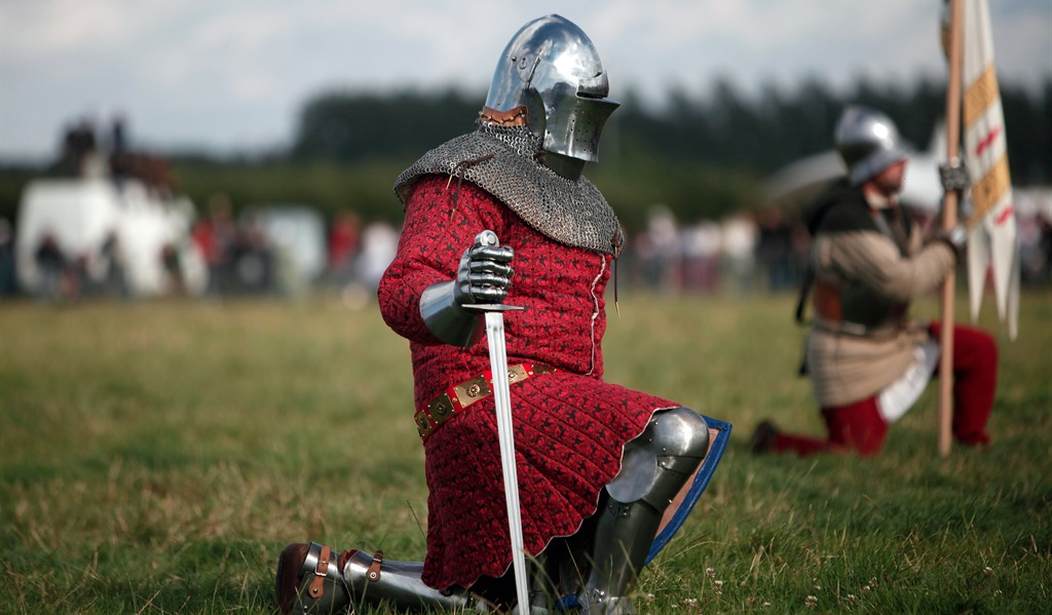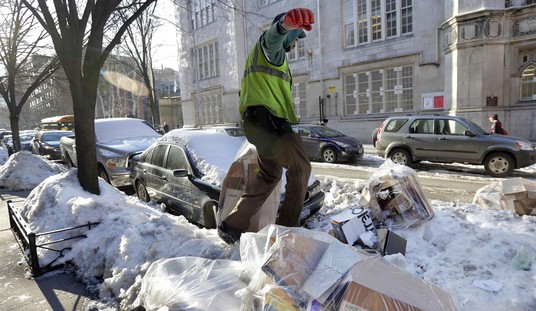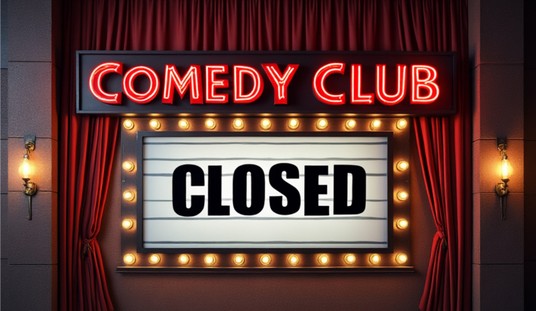“If we are mark’d to die, we are eno[ugh] To do our country loss; and if to live, The fewer men, the greater share of honour!” William Shakespeare’s St. Crispin’s Day Speech in his immortal play “Henry V ” is one of the most famous speeches in history. There are many reasons why, but one of them is that it captures the essence of what is necessary for great achievements—and inspires men to strive for that greatness.
Today, Oct. 25, is the feast of Sts. Crispin and Crispian (or Crispinian). They were brothers who evangelized in Gaul (France) in the 3rd century. Cobblers by profession, Crispin and Crispian would preach during the day and make shoes during the night. Their virtues, their charity, their humility, their religious fervor, and their detachment from material wealth were so impressive that they converted many people. The brothers were eventually martyred for their Christianity, however, during the persecutions of Emperor Maximian Herculeus. Ironically, it was an English writer who immortalized these martyrs—and in the context of an English army defeating a French force.
William Shakespeare portrayed the title character in the play “Henry V” delivering the famous St. Crispin’s Day speech, so that he (Henry V) can inspire the outnumbered and exhausted English before the Battle of Agincourt. Both in the play and in history, the English won a great and nearly miraculous victory against their French adversaries at Agincourt, sustaining relatively few losses themselves while inflicting heavy losses on the French, despite facing a far more numerous enemy force (the French outnumbered the English four or five to one).
The speech shows the incredible importance of having a cause worth fighting for. Men must have hope, a something to look forward to, a something or someone for whom to struggle. Without that, we are as lost as a mariner with no compass, trying to fill our lives with meaningless work or pleasure because of the emptiness inside and the lack of direction or achievement. We can see it all too clearly in America today, where millions are in crying need of a cause to which to dedicate their lives.
In the St. Crispin’s Day speech, we can see Shakespeare’s King Henry V laying out his recipe for success, as it were: faith in God, enthusiastic dedication to one’s motivating cause, determination to beat seemingly insuperable odds, and a belief in the common brotherhood of all good men. We see Henry’s faith in God through his framing his speech around the fact that the day is a religious feast. Long before the English and French squared off at Agincourt, two martyrs became saints by sacrificing everything because they thought something was worth dying for, just as Henry V believed he and his men had a cause worth dying for. Henry looks to the intercession and example of those same martyrs (see James 5:16) for the victory of him and his men.
That leads to the second point: that Henry knew men have to be enthusiastically dedicated to their cause to rush headlong into a seemingly impossible fight. To win, Henry’s men must be not only willing but eager for “honour”; and, as noted above, they have to be determined to keep fighting no matter how the cards seem stacked against them. Finally, Henry calls every man who fights bravely with him his “brother,” his equal. Henry might be the king, the leader, but he knows that he cannot win the battle without his soldiers, and that, in a fight to the death, all men lose the distinction of rank and become equal. A slave can be coerced, and a servant can be pressured, but only a brother will stay at your side no matter the odds.
Below are excerpts from the St. Crispin’s Day Speech, with a clip of Kenneth Branagh’s adaption of it for the screen:
If we are mark’d to die, we are eno[ugh]
To do our country loss; and if to live,
The fewer men, the greater share of honour.
God’s will! I pray thee, wish not one man more…But if it be a sin to covet honour,
I am the most offending soul alive.
No, faith, my coz, wish not a man from England…Rather proclaim it, Westmoreland, through my host,
That he which hath no stomach to this fight,
Let him depart; his passport shall be made
And crowns for convoy put into his purse:
We would not die in that man’s company
That fears his fellowship to die with us.This day is called the feast of Crispian…
He that shall live this day, and see old age,
Will yearly on the vigil feast his neighbours,
And say ‘To-morrow is Saint Crispian:’
Then will he strip his sleeve and show his scars.
And say ‘These wounds I had on Crispin’s day.’
Old men forget: yet all shall be forgot,
But he’ll remember with advantages
What feats he did that day…This story shall the good man teach his son;
And Crispin Crispian shall ne’er go by,
From this day to the ending of the world,
But we in it shall be remember’d.We few, we happy few, we band of brothers;
For he to-day that sheds his blood with me
Shall be my brother; be he ne’er so vile,
This day shall gentle his condition:
And gentlemen in England now a-bed
Shall think themselves accursed they were not here,
And hold their manhoods cheap whiles any speaks
That fought with us upon Saint Crispin’s day.
Henry V needed his men to follow him if he was to survive battle with the French and achieve his goals. In America now, we need men and women willing to risk everything to save, reform, and protect this country. With our faith in God, our dedication and determination in the face of difficult obstacles, and our belief in the rightful liberty and equality of all men, we shall ensure that America has a new birth of freedom.










